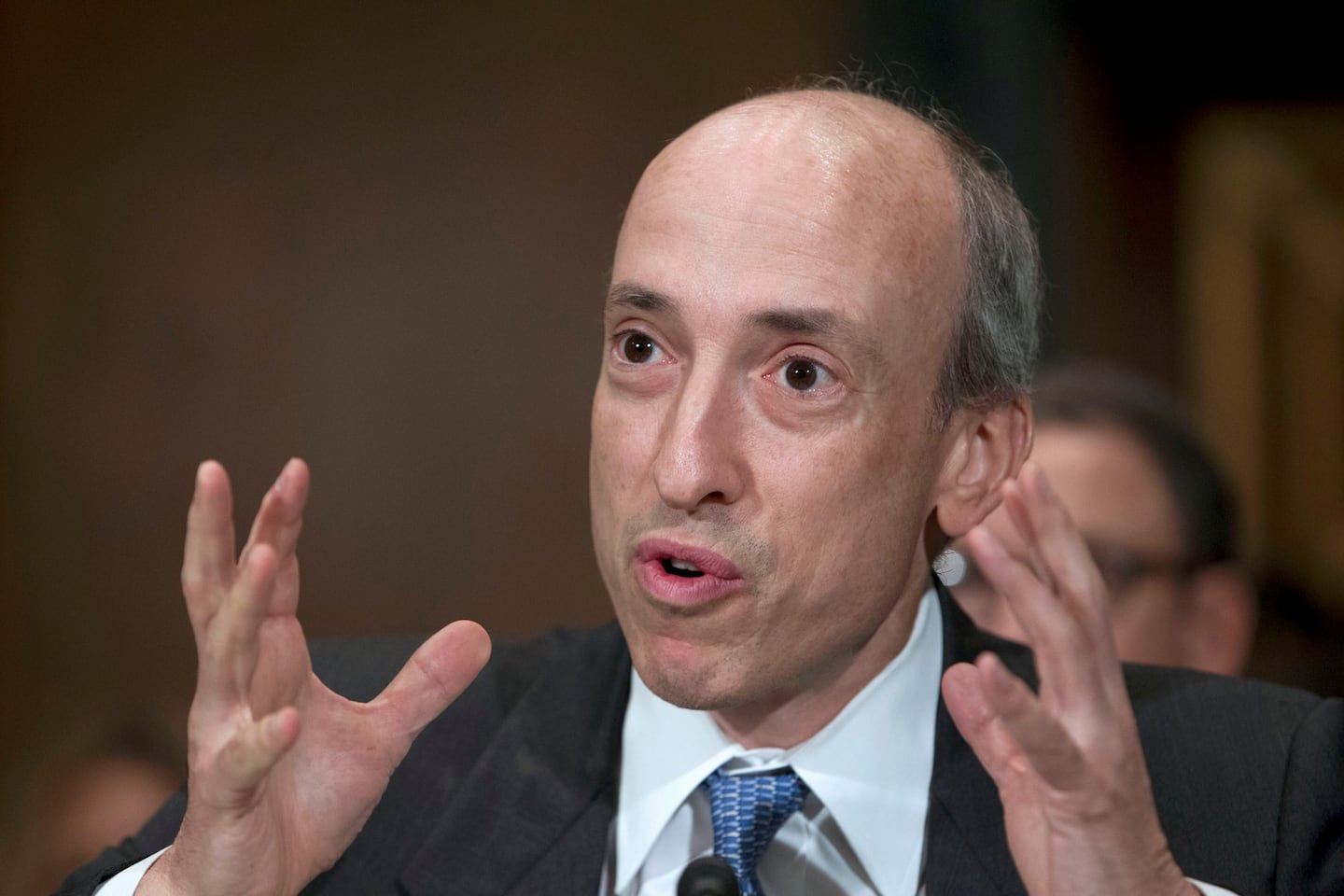President Biden’s SEC pick signals companies could face wave of new disclosure rules

He said he wants to know whether investors are getting the best deal when trading apps such as Robinhood sell their trades to market-making firms to execute. And Gensler said he would review the apps’ practice of adding celebration displays when users place trades, encouraging a gamelike experience.
Gensler appeared with Rohit Chopra, Biden’s nominee to lead the Consumer Financial Protection Bureau. Both are expected to win Senate confirmation in coming weeks. But they faced pushback from Republicans wary that the nominees, who have both established reputations as aggressive regulators, will use their posts to advance liberal policy priorities.
“There are some who want the SEC to stray from its tradition of bipartisanship by using its regulatory powers to advance a liberal social and cultural agenda on issues ranging from climate change to racial inequality,” said Sen. Patrick J. Toomey (Pa.), the committee’s top Republican. “Based on Mr. Gensler’s record, I’m concerned that he may be inclined to use the SEC in this inappropriate manner.”
Gensler, whose career took him from Goldman Sachs partner to industry scourge at the Commodity Futures Trading Commission after the 2008 financial crisis, emphasized his bipartisan record and desire to work with Republicans. He was careful to avoid any firm commitments on big decisions he is likely to face.
Yet he signaled an interest in advancing the Democratic push for companies to report more on controversial topics.
Activists shareholders, for example, have been pressing companies for years to disclose more about their political spending. The effort has gained new urgency in the wake of the Jan. 6 mob attack on the U.S. Capitol and the subsequent decision by scores of companies to suspend giving from their political action committees. And Democrats on the SEC are likely to seek a rule requiring more political transparency from corporations if Congress lifts a ban it has imposed on such an action.
Toomey pressed Gensler on whether such a requirement could be considered material to investors if a company’s political spending makes up only a tiny fraction of its balance sheet. Gensler noted that in last year’s proxy season, shareholder resolutions that would require more disclosure gathered more than 40 percent approval.
“It’s about investors making a choice about what’s significant or material,” he said. Investors, Gensler added later, “want to see what the companies they own are doing in the political arena. So, if confirmed, it is something that I think the commission should consider in light of the strong investor interest.”
The Biden-era SEC, under acting chair Allison Herren Lee, already is moving to update decade-old guidance on what climate-related risks companies need to disclose. The agency last week announced it is developing “a more comprehensive framework that produces consistent, comparable, and reliable climate-related disclosures.”
Gensler suggested Tuesday that he is ready to follow suit.
“In 2021, there’s tens of trillions of dollars of invested assets that are looking for more information about climate risk,” he said. “And I think then the SEC has a role to play to bring some consistency and comparability to those guidelines.”
Gensler stopped short of endorsing a Nasdaq proposal pending before the SEC that would require the board of each company listed on the exchange to include at least one woman and one self-identified minority. But he said would consider what demographic information investors want to know. And he said he thinks companies with more diverse management have proved more successful.
For his part, Chopra said he will focus on ensuring that Americans struggling under debt burdens and other pandemic-related financial setbacks get the relief they need, in part by policing any abuses by credit bureaus and servicers of mortgages and student loans.
Chopra, who began his career as consultant for the global management firm McKinsey & Company after graduating from the Wharton School, served as student loan ombudsman at the CFPB in its earliest days. He now serves as a commissioner on the Federal Trade Commission, where he has been an outspoken critic of big tech firms.
Toomey drew an apology of sorts from Chopra over a 2016 criticism he lodged against Republicans pushing to curb the CFPB’s independence. At the time, Chopra said those lawmakers were “shilling for predatory lenders.” Pressed on the comment Tuesday, Chopra said, “I regret that, if I said that.”






